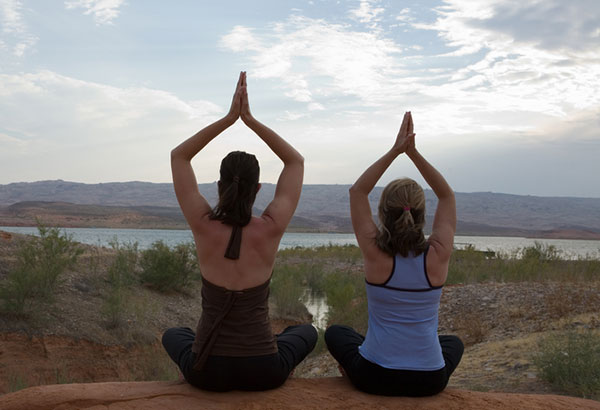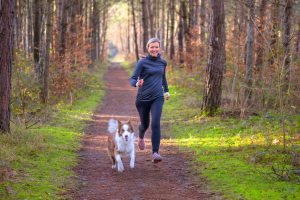Terry Michael is sharing the difference in yoga instructors and practicing yoga to help our readers interested in finding a yoga “home” where they feel comfortable and supported. You can refer to her previous posts featuring Tina Marie Rodriguez, Eva Montalvo, Anya Deva, Grace Surjan Kaur Geller, Kathleen Hayden and Meredith Kramer. This month, Terry interviews Amy Forman, a practicing yoga instructor of classical Sivananda Yoga.
What type of yoga do you teach?
I teach classical Sivananda Yoga.
What is your personal philosophy as a Sivananda Yoga instructor?

“Peace begins with me.” The practice of yoga is to make responsible choices for ourselves by tuning in to our inner knowing of what the best course of action will be, in each moment. When we are aligned in our truth, our life experience becomes enjoyable, even amidst an environment of struggle. One person can make a big difference within a family or community, but if we constantly focus on all that needs to be done we will soon burn out. By making time to nourish our spirit, we learn to trust ourselves and we find many moments of experiencing peace and stability. If we love the world and want to do the best we can to be of service, developing the discipline of a yoga practice, even a simple one, will amplify the power of our positive influence.
What is mindfulness and how do you bring this to your work as a yoga instructor?
Everyone has an inner voice. Everyone has an ever-evolving though central personal truth and a relationship with God, even if they aren’t aware of it. Many distractions pull our attention away from the often subtle guidance that is always with us. Grand rituals and incantations are not necessary to access great wisdom and love because it is so close to home, in fact, this is the very essence of who we are. The mind is like a lake with many ripples. These are the echos of all the thoughts and stimulus in our experience. Practicing yoga quiets the lake of or mind and when the water is still, we can see clearly.
My job as an instructor is to provide an opportunity for the students to quiet their mental noise through practicing yoga postures, breathing exercises, and relaxation techniques.
Tell us a little bit about your training.
My TTC was just what I needed, what I felt was extreme focus and self-discipline. My training required that I live “monastically” for 10 weeks, abstaining from all television, lyrical music, alcohol, smoking, and loud company (believe it or not, this was before social media was such a big deal, but we probably would have cut that too). 6 days a week we gathered to meditate at 6 am and our days stayed busy with “karma yoga” (community service), lectures, asana classes (7 weekly), and Kirtans. It was definitely an immersion. Even now, I am still so pleased and amazed that I was able to complete the course (2008). Having that experience is amoung the greatest challenges and greatest blessings of my life.
Will you describe one of your classes?
Sivananda Yoga feels masculine to me. I don’t mean it’s more for men than women, I am talking about the structure and technique. It is practical, authentic, and complete. Just last week my teacher said to me, “There is no magic, only hard work,” while encouraging me towards more discipline in my own morning practice routine. There is less storytelling and frilly edges than some other styles of yoga. Students are meant to be in meditation while moving through poses (though, being a community of friends, we do have an occasional laugh over something silly, but we come quickly back to focused practice). The practice is usually 90 minutes, including breathing exercises, postures at a comfortable pace, and a yoga Nidra type of relaxation at the end.
What is the most beneficial pose in Sivananda Yoga?
Absolutely, Savasana (corpse pose). We revisit this supine position between the practice of postures and we end each class with a guided relaxation and meditation in Savasana.
What do you like best about teaching?
Gosh, I really have this relationship with yoga, both as a student and a teacher. It can be complicated, and even frustrating, but my relationship to my practice is truly that of a dear friend. It challenges me in all the right ways and it supports me when I need a soft place to land. I know I have this wisdom in my back pocket, and just that awareness makes me feel more confident and at ease.







